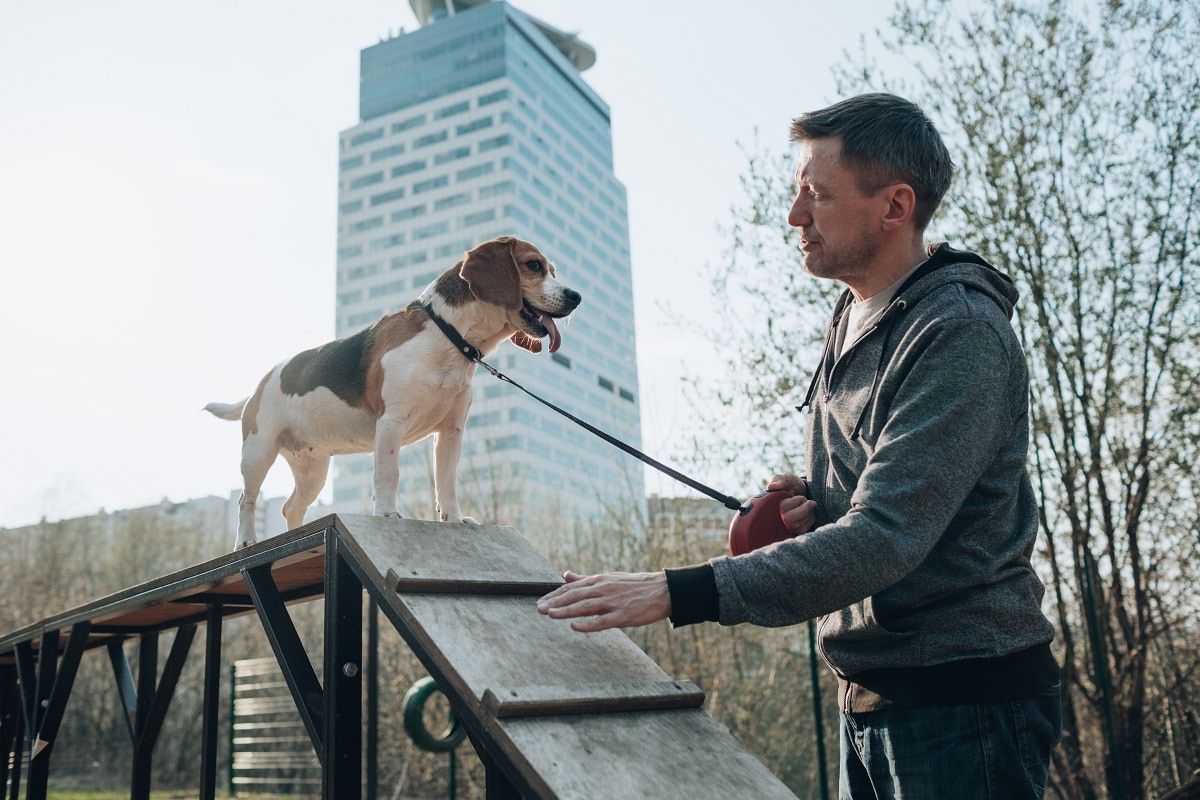Living with a dog in an urban setting is much different than it is in a more rural or suburban area. Many people assume that because you don’t have a large private outdoor space for your pup to run around on, it’s best not to have a dog in the city. But that simply isn’t the case. In fact, millions of city-dwelling dogs live rich, rewarding lives.
That said, while all dogs should receive some kind of training for when they enter public spaces, this is especially true for dogs in urban areas, since they will likely be exposed to a lot more people and other dogs. If you plan on raising a dog in a densely populated area, it is important that you invest some real time properly training them for it, and brief your dog sitter.
>> Looking for pet care? Find dog sitters in your area now.
Get an early start
Puppies can develop important habits and disciplines in the first few months of life. Many people do not begin to train them until they are older and more capable of following instructions. Dog training experts claim that this is a mistake. Those early times are a wonderful opportunity to get a head start teaching your dog how to properly behave in every kind of setting.
There are multiple methods of training. Find one that best suits your needs and be consistent with it from the start. It will take some patience. Potty training will likely be your biggest hurdle—though for some dogs, this part is a breeze and it’s taming their sidewalk manners that proves most difficult. Stock up on puppy training pads, especially if you live on a higher floor and it isn’t easy to get outside immediately when they need to go. And don’t forget to practice good public potty training etiquette, such as bagging and properly disposing of waste.
You are the boss!
In addition to potty training, your dog will require a bit of social training, too. The most important thing to demonstrate is that you are in charge. That doesn’t mean being heavy-handed and harsh. But when you are walking crowded streets, or going to a public space with lots of other dogs and people, don’t just assume that your dog will naturally understand what to do or not do. It’s important that they know you are the leader. Failing to demonstrate this can result in anxiety which is the root of many kinds of bad behaviour in dogs. It is your job to lovingly lead, and head off confrontations at the pass.
Reward good behaviour
As mentioned above, there are numerous methods of training. Choose whichever you like, but experts across the board do recommend some structure of rewarding good behaviour. This is definitely true for bringing your pup up to speed in the city. Any time they follow your instruction to resist chasing a car, you should be right there giving them loads of praise for it. Missed opportunities here can mean delays in obedience.
Prioritize exercise
Lastly, if you plan on having a dog in the city, it is important that you give them lots of opportunities to exercise. Going without exercise can make dogs antsy and prone to poor behaviour.
This is where it can get a bit tricky—it isn’t as easy as, say, opening the back door and letting them run free in a large fenced-in yard. But that doesn’t mean it has to be a drag. Walking your dog frequently helps you stay healthy too, both physically and mentally. And if your schedule simply doesn’t permit you to walk your dog as often as you’d like, look for a trusty dog walker in your area.
Beyond walks, it shouldn’t be hard to find off-leash exercise for your dog. Many neighbourhood parks have an off-leash area where dogs can run free. Playing fetch in these types of parks is a great way to keep your dog fit, and is a great bonding opportunity, too.
by freelance writer Riley Herder
